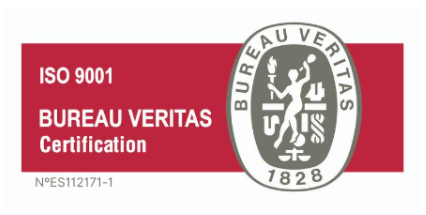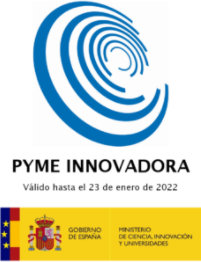ISO 9001:2015 is a widely recognized international standard that has become the benchmark par excellence for quality management. In this article, we will explore in detail what ISO 9001 is and what its benefits are. Discover how this standard can transform your company for the better.
What exactly is ISO 9001?
ISO 9001 is an international quality management standard developed by the International Organization for Standardization (ISO). This standard establishes the minimum requirements for establishing an effective quality management system that can be applied to any organization, regardless of its size or sector, and ultimately improve customer satisfaction.
The main objective of this standard is to ensure that a company can offer products and/or services and that they meet the quality standards required by its customers and other stakeholders.
Benefits of achieving ISO 9001
Implementing a quality management system (QMS) is a strategic decision for a company to improve its overall performance and provide a solid foundation for sustainable development initiatives.
The benefits derived from the implementation of a quality management system based on this standard are:
- The ability to regularly provide products and services that meet customer and applicable legal and regulatory requirements;
- Facilitate opportunities to increase customer satisfaction;
- Address the risks and opportunities associated with your context and objectives;
- The ability to demonstrate conformance to specified quality management system requirements.

Objectives:
The main objectives of ISO 9001:
- Improve the quality of products and/or services;
- Increase customer satisfaction;
- Optimize production efficiency;
- Ensure legal and regulatory compliance;
- Facilitate data-driven decision making;
- Continuous improvement;
- Personnel training;
- Leadership,
- Strengthen the company's reputation.
Steps to become ISO 9001 certified:
Certification to ISO 9001 involves a methodical and structured process to ensure that an organization complies with the quality management requirements established by the international standard. The following is a guide to the steps necessary to obtain certification:
- Top Management Commitment: It is essential that the top management of the organization is committed to the implementation of ISO 9001. This includes allocating resources, appointing a quality management team and setting clear objectives for the process.
- Training and awareness: Key personnel in the organization should be trained on ISO 9001 and its requirements. This includes understanding the principles of quality management and how they apply to the company's operations.
- Establishment of the Quality Management System: QMS design and implementation in accordance with ISO 9001 requirements. This involves:
- Identify the key processes in the organization.
- Document the procedures and policies related to these processes.
- Establish indicators to monitor and measure the effectiveness of the processes.
- Conducting Internal Audits: Once the QMS has been implemented, internal audits should be conducted to evaluate its effectiveness and verify that the requirements of the standard are being met. These internal audits will help identify areas for improvement prior to the external audit.
- Selection of a Certification Body: to obtain certification, an accredited certification body must be selected to carry out the external audit. Make sure that the certification body has experience in the industry and is internationally recognized.
- External Audit: The certification body will conduct an external audit to assess whether the QMS meets the requirements of ISO 9001. This will include interviews with personnel, review of documents and observation of processes and their interaction.
- Corrective Action: In the event that nonconformities are identified during the external audit, the organization should take corrective action to address these issues. This may include revision of procedures, training of personnel or any other necessary adjustments.
- Obtaining Certification: With all non-conformities addressed and the QMS meeting the requirements of the standard, the certification body will issue the ISO 9001:2015 certification. This certifies that the organization has implemented and maintains an effective quality management system.
- Maintenance and Continuous Improvement: certification is not a one-time achievement; it is a constant cycle of improvement based on the PDCA methodology that requires adaptation as the organization evolves. Therefore, the organization must continue to monitor and improve its processes and procedures to maintain certification and take advantage of the benefits of ISO 9001.
For which types of companies is the investment recommended?
Investment in ISO 9001 certification is recommended for any type of company, regardless of size or industry. Below are some of the types of companies for which certification is particularly beneficial:
- Manufacturing Companies: Companies that produce tangible goods, such as: food products, pharmaceuticals, automobiles, can benefit greatly from ISO 9001 certification. The standard improves product quality, helps reduce defects and ensures that products meet required quality standards.
- Service Companies: Organizations offering services can gain significant advantages through ISO 9001 certification as it helps standardize service processes, increase customer satisfaction and ensure delivery of consistently high quality services.
- Logistics and Transportation Service Providers: Transportation and logistics companies can improve the efficiency of their operations, ensure on-time delivery of goods and meet customer demands by obtaining ISO 9001 certification.
- Companies expanding into international markets: ISO 9001 certification is often a requirement for doing business with international companies or entering new global markets. It helps demonstrate that a company meets international quality standards.
In short, ISO 9001 certification is versatile and applicable to any type of company. Regardless of the industry in which you operate, this standard can help you improve the quality of your products or services, increase customer satisfaction, strengthen operational efficiency and open doors to new markets, making certification an investment that can drive your company's long-term success.

Quality Systems Engineer at MESbook
José Antonio Nigro
Responsible for the management and maintenance of the ISO 9001:2015 Standard and responsible for external and internal audits.




